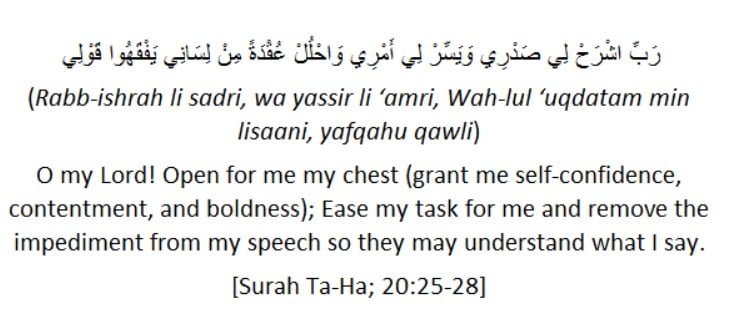Memorize the Qur’an: In contrast to other faiths, Islam promotes active engagement with its liturgical language through this practice. This is essential for performing salah (prayer), highlighting the significance of the original Arabic text. There are numerous easy methods and spiritual, emotional, and cognitive benefits associated with reciting and memorizing the Qur’an in Arabic.
9 Easy Methods to Memorize the Qur’an
- Recite each line 10 times, then repeat from memory 1-10 times.
- The Mirror Method: Recite an ayah 7 times while looking, then 7 times from memory, reducing repetitions.
- The 6446 Method: Recite a verse 6 times while looking, then 4 times from memory, adjusting as needed.
- Recite each line 7 times while looking, then from memory, gradually combining lines until the entire page is memorized.
- Listen to the page, then recite each line slowly 6 times while looking and 14 times quickly from memory.
- Practice multiple times before sleeping, gradually increasing speed and focusing on memory recall.
- Recite the page before sleeping, listen to a reciter, and then repeat multiple times while looking and from memory.
- Study the translation and Tafseer, then recite each verse 15-20 times while looking from memory.
- The 3×3 Workout: Recite the lesson 7 times while looking, then each verse 3 times, combining and repeating as needed.
15 Techniques to Memorize the Qur’an

- Sincerity (Ikhlaas): The purification of intention and sincerity are obligatory to memorize the Qur’an. It should be solely for the sake of Allah, seeking His pleasure and Paradise, and the associated rewards mentioned in the Quran and Hadith.
- Assign Meaning and Purpose: Linking the Qur’an’s teachings to one’s life purpose and values enhances memorization. Understanding its role in explaining life’s origins, moral values, and guiding principles fosters a deeper connection.
- Setting Daily Limits: Establishing a daily limit for memorization helps maintain consistency. It can be a set number of verses, pages, or a portion of a chapter (juz). Regular repetition, done melodiously, aids memorization.
- Recite Aloud and Rehearse: Research suggests that reading aloud aids in long-term memory retention. Given that the Qur’an was originally transmitted orally, reciting it aloud aligns with its traditional mode of transmission and enhances memorization.
- Utilize Memory Devices: Mnemonic devices, such as chunking verses, visualizing familiar places, or using flashcards, can aid memorization. Rhyming patterns and recitation melodies also assist in retaining verses.
- Use the Same Copy of the Quran: Memorize from a single copy of the Quran to maintain consistency in script and layout, facilitating memorization.
- Complete Surahs: Before moving on to a new surah, ensure the memorization of the previous one is complete and fluent from beginning to end.
- Utilize Colorful Imagery: Engaging the imagination by visualizing verses in vivid colors or associating them with memorable events aids memorization. Personalizing the approach to suit individual learning styles enhances effectiveness.
- Understand the Text: Comprehending the meaning of Qur’anic verses facilitates memorization by recognizing repetitive patterns and key concepts. Familiarity with Arabic enhances the recognition of recurring phrases, aiding in memorization.
- Reciting to Others: Testing memorization by reciting to others or following along in the Quran helps identify errors or areas needing improvement.
- Take Breaks: Rest periods are crucial for optimal cognitive functioning and retention of information. Structuring study sessions with regular breaks prevents mental fatigue and enhances overall effectiveness.
- Recognizing Similar Verses: Understanding the resembling parts of the Quran aids in memorization. Give special attention to similar verses in wording and meaning.
- Utilize in Prayer: Reciting memorized verses during prayer fulfills religious obligations and reinforces memorization. Even small portions of the Qur’an hold significance and can elicit profound emotional responses, as demonstrated by the Prophet Muhammad’s reaction to hearing certain verses.
- Constant Review: Regularly review previously memorized portions to prevent forgetting. The Quran is quickly lost from memory if not consistently revisited.
- Dua (Supplication): Dua is integral in a Muslim’s life, including memorizing the Quran It is a means of seeking help and blessings from Allah. Encourage regular dua for success in memorization, recognizing its importance in the journey of Quranic learning.
Encouraging starting with small portions and gradually expanding memorization efforts emphasizes that every letter recited carries spiritual merit. Emphasizing the significance and beauty of the Qur’an in daily life enhances motivation and commitment to the memorization process.
Importance of Dua
Dua, or supplication, holds profound significance in the life of Muslims as it serves as a direct conversation with Allah Almighty. Through dua, believers express their needs and seek assistance from the Creator to resolve their problems, regardless of their magnitude. Encouraging Muslims to engage in dua in every situation fosters a closer connection with Allah, as it is considered a powerful tool that can alter one’s circumstances by seeking divine intervention.
For Muslims, connecting with the Quran is of utmost importance, yet many may find themselves lacking the time or knowledge to do so effectively. In such instances, dua serves as a powerful resource to memorize the Qur’an. The Quran and Sunnah emphasize the significance of dua as a means for individuals to draw nearer to Allah. Allah Himself assures in the Holy Quran that He is close to His servants and listens to the prayers of those who call upon Him.
The hadith further underscores the importance of dua, stating that nothing is more honorable to Allah than dua. This highlights the esteemed status of dua in Islam and emphasizes its pivotal role in believers’ lives. By understanding the benefits derived from dua, its significance is further magnified, motivating individuals to engage in it earnestly.
Moreover, Islam considers memorizing the Qur’an a noble endeavor. To aid in this pursuit, it recommends supplications specifically tailored for memorization. These supplications can serve as a source of assistance for individuals who have embarked on or are planning to undertake the memorization of the Quran. Additionally, with the advent of the internet, numerous resources are available to Memorize the Qur’an, allowing individuals to learn and recite the Quran at their own pace and convenience through online Quran institutes.
Recommended Reads
The Importance Of Memorizing Quran: Benefits, Tips & Techniques
Dua’s for Memorizing the Quran
Final Words
Therefore, everyone must seize the opportunity during their prime years to Memorize the Qur’an. If we are unable to do so ourselves, we should encourage our children to take advantage of this crucial time. However, these methods offer faster alternatives to conventional memorization techniques and have been proven effective by many. Experiment with them, make adjustments as needed, and maintain patience throughout the process.
Remember, achieving success in Quran memorization requires dedication and perseverance. Success ultimately lies with Allah, and may His blessings and peace be upon our Prophet Muhammad, his family, and all his companions. May Allah grant you success in your endeavors!






